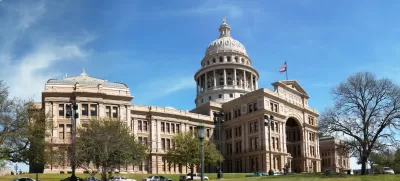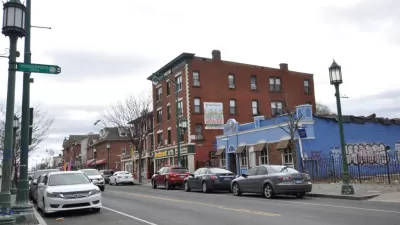Current Texas law grants state representatives significant power over whether affordable developments receive federal tax credits. Controversially, several representatives have proposed the reduction of their own authority in that regard.

Texas has long been a key stage for debates over fair housing, as in the controversy over "disparate impact" that led to a landmark Supreme Court affirmation of civil rights law in 2015 (and subsequent doubts over the future of Obama-era reforms). This year, Jared Brey writes, housing groups and a number of state representatives want to rework the state assessment process for federal Low-Income Housing Tax Credit (LIHTC) applications.
"Currently, state representatives have a lot of sway over proposed development via letters submitted during the assessment process," Brey writes. He goes on, "That power has been used to reinforce patterns of residential segregation in Texas that have been the subject of legal battles for years. [...] Even in the most innocent scenarios, state representatives' support has a very loose connection to the merits of a project, housing advocates say." Less innocent allegations include the political entrenchment of racist attitudes and outright bribery.
Several state reps are currently trying to remove the letters from LIHTC scoring criteria, Brey says. "Proponents of the new bills hope that the recent high-profile examples of state representatives blatantly misusing their influence over low-income housing projects will give the legislation a better chance of passing this year."
FULL STORY: Some Texas Lawmakers Are Trying to Deflate Their Housing Power

Planetizen Federal Action Tracker
A weekly monitor of how Trump’s orders and actions are impacting planners and planning in America.

Chicago’s Ghost Rails
Just beneath the surface of the modern city lie the remnants of its expansive early 20th-century streetcar system.

San Antonio and Austin are Fusing Into one Massive Megaregion
The region spanning the two central Texas cities is growing fast, posing challenges for local infrastructure and water supplies.

Since Zion's Shuttles Went Electric “The Smog is Gone”
Visitors to Zion National Park can enjoy the canyon via the nation’s first fully electric park shuttle system.

Trump Distributing DOT Safety Funds at 1/10 Rate of Biden
Funds for Safe Streets and other transportation safety and equity programs are being held up by administrative reviews and conflicts with the Trump administration’s priorities.

German Cities Subsidize Taxis for Women Amid Wave of Violence
Free or low-cost taxi rides can help women navigate cities more safely, but critics say the programs don't address the root causes of violence against women.
Urban Design for Planners 1: Software Tools
This six-course series explores essential urban design concepts using open source software and equips planners with the tools they need to participate fully in the urban design process.
Planning for Universal Design
Learn the tools for implementing Universal Design in planning regulations.
planning NEXT
Appalachian Highlands Housing Partners
Mpact (founded as Rail~Volution)
City of Camden Redevelopment Agency
City of Astoria
City of Portland
City of Laramie





























